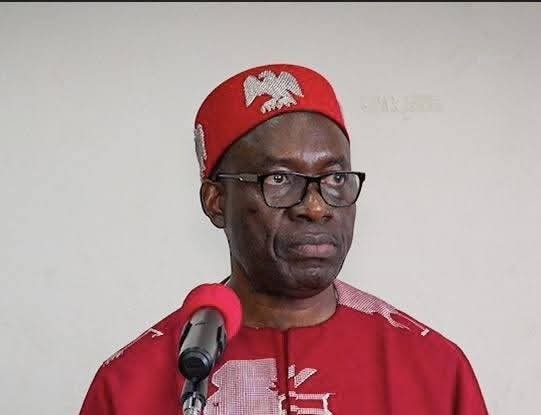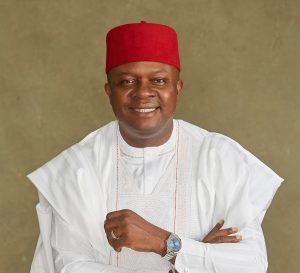The N750 Million Polymer Banknote Contract Controversy: Soludo, EFCC, and the Securency Scandal
In the annals of Nigerian banking and political history, few names resonate as strongly as that of Professor Charles Chukwuma Soludo. A distinguished economist, former Governor of the Central Bank of Nigeria (CBN), and later a prominent political figure, Soludo’s career has been both lauded and controversial. One of the defining episodes of his public life unfolded in 2013, when he was linked to a scandal surrounding a ₦750 million contract awarded for printing polymer banknotes—a contract allegedly marred by bribery and international corruption.
This story is a complex interplay of policy decisions, anti-corruption efforts, media narratives, and the delicate line between suspicion and exoneration. It reflects not only on the individual at the center but also on Nigeria’s ongoing struggle with transparency and institutional integrity.
During Soludo’s tenure as Governor of the CBN (2004–2009), Nigeria embarked on a major overhaul of its currency materials. In 2006, the CBN introduced polymer banknotes in place of paper notes for some denominations, citing durability, security, and environmental factors. This transition followed similar moves by countries like Australia and New Zealand.
The contract for the printing of these polymer notes was awarded to Securency International, an Australian company that had developed and marketed polymer banknote technology globally. At the time, the shift was hailed as a technological leap forward in currency security. However, unknown to many, Securency would soon find itself at the heart of an international bribery scandal.
By 2010, global anti-corruption watchdogs had begun investigating Securency. Australian authorities, in cooperation with UK and US investigators, alleged that Securency paid bribes to secure contracts in several countries, including Nigeria. The company allegedly routed illicit payments through intermediaries—particularly British businessmen—who facilitated deals with top-level officials.
Investigative reports claimed that some Nigerian officials, including former CBN executives, received bribes to ensure that Securency won the printing contract. According to the Human and Environmental Development Agenda (HEDA), a Nigerian civil society group, these payments amounted to ₦750 million.
YOU MAY READ
Anambra Turned into a Stage Play as Soludo Recruits Skit Actors to Showcase Janglover
In May 2012, HEDA submitted a detailed petition to the Economic and Financial Crimes Commission (EFCC), demanding an investigation into the printing contract. They named Soludo and other unnamed CBN and government officials as potential beneficiaries of these corrupt practices.
On January 10, 2013, Soludo was invited by the EFCC to clarify his role in the controversial polymer banknote contract. Contrary to widespread media reports suggesting he was arrested, Soludo’s media team clarified that he had voluntarily honored an official invitation from the Commission.
The EFCC detained him for several hours before releasing him on administrative bail. As part of his bail conditions, Soludo was required to surrender his international and diplomatic passports and to provide two sureties of senior civil service rank.
A source within the EFCC told Saturday Vanguard that Soludo was picked up from his Abuja residence and interrogated in connection with the ₦750 million scam. The source added, “We will continue to invite him for interrogation as the need arises since it is an ongoing investigation.”
Also interrogated were officials from the Nigerian Mint and other financial institutions. While the EFCC did not publicly disclose details of the testimonies, media reports indicated that some suspects had made “useful statements.”
Shortly after news of the EFCC probe broke, Soludo’s media office issued a rebuttal. The statement, signed by Bonaventure Melah, emphasized that Soludo was not arrested but merely honored a routine invitation.
“The EFCC wrote a letter to Prof. Soludo inviting him to their Abuja office on the 10th of January 2013. Prof. Soludo was abroad attending several international engagements when the letter was sent to his aides. He returned in the New Year and voluntarily went to the EFCC office,” the statement read.
YOU MAY READ
Soludo Unveils Second-Term Vision: Smart Cities, Rail Network, Tourism, Others
Soludo himself remained composed throughout the ordeal, maintaining his innocence and urging the public not to rush to judgment. While acknowledging the seriousness of the EFCC’s mandate, he called for due process and professional integrity in handling the matter.
The 2013 EFCC episode came at a politically sensitive time. Soludo had recently run as the governorship candidate of the Peoples Democratic Party (PDP) in Anambra State, and speculation was rife that the corruption probe had political undertones.
Nigerian politics is often characterized by rivalry-fueled investigations, especially against high-profile opposition or former officials. Media outlets quickly latched onto the arrest narrative, fueling public speculation and damaging reputations even before facts were fully established.
Some commentators criticized the media for what they described as “trial by headline.” The term refers to the tendency of some journalists to sensationalize issues for clicks or to serve partisan interests, often at the expense of factual accuracy.
In a dramatic turn of events, the EFCC, after more than two years of intermittent investigation, announced in 2015 that it had found no evidence to indict Soludo in the polymer banknote scandal. The commission reportedly closed the case quietly, issuing no formal charges against the former CBN governor.
Soludo’s exoneration was a significant moment. It was a public acknowledgment, albeit understated, that the initial suspicions had no prosecutable basis. For his supporters, it was a vindication of character. For critics of the EFCC, it raised questions about the motives behind high-profile investigations and the agency’s procedural rigor.
However, the shadow of the investigation lingered. In Nigeria, mere association with corruption allegations can have lasting reputational consequences, regardless of the outcome. Political opponents continued to reference the scandal, often omitting the fact that Soludo had been cleared.
While Soludo was cleared in Nigeria, international investigations into Securency continued. In Australia, executives were tried for foreign bribery under that country’s laws, with varying outcomes. The scandal exposed how foreign companies used elaborate networks of intermediaries to manipulate public procurement processes in developing nations.
The Nigerian case was particularly sensitive because it involved the CBN—a key institution in the country’s economic stability—and affected the credibility of Nigeria’s currency reforms. Though Soludo’s role was not criminally established, the episode highlighted systemic vulnerabilities in how large contracts were awarded and supervised.
It also prompted calls for tighter due diligence protocols, improved procurement transparency, and stricter anti-bribery compliance in Nigeria’s financial sector.
Despite the shadow of the polymer banknote controversy, Soludo has since re-emerged as a major political figure. In 2021, he won the Anambra State governorship election under the banner of the All Progressives Grand Alliance (APGA), showcasing his resilience and enduring public appeal.
His victory was interpreted as both a personal comeback and a broader endorsement of technocratic leadership in Nigerian politics. As Governor, Soludo has focused on structural reforms, public sector accountability, and digital governance—positions that echo his earlier CBN policies.
Critics remain cautious, pointing to his past controversies. But supporters argue that his exoneration by the EFCC, combined with his performance in office, entitles him to a fair re-evaluation.
The Soludo polymer note saga provides a valuable case study in how anti-corruption efforts intersect with legal standards, media ethics, and political dynamics. It demonstrates that while investigative agencies like the EFCC play a crucial role in fighting graft, they must uphold principles of fairness, transparency, and professionalism.
Inviting a high-profile figure for questioning is not, and should not be seen as, a presumption of guilt. However, Nigeria’s legal culture and media ecosystem often blur this distinction, leading to reputational damage long before verdicts are issued.
The incident also raises deeper questions about how Nigeria handles foreign contractors and procurement oversight. If Securency indeed paid bribes, then the broader system—not just individuals—must be examined and reformed.
The ₦750 million polymer banknote controversy was one of the most high-profile corruption probes of the early 2010s in Nigeria. It drew in international actors, sparked media frenzy, and tested the reputation of one of Nigeria’s foremost economists. Ultimately, Professor Charles Soludo was cleared of wrongdoing by the EFCC, but the episode remains a cautionary tale about due process, media responsibility, and institutional trust.
In a forward-looking context, Nigeria continues to grapple with the need for transparent governance. As Soludo himself now governs a state, the lessons of his past experiences—including the polymer note investigation—can inform a new era of accountability and reform.
Whether one views the 2013 events as a baseless witch-hunt or a necessary probe into a murky transaction, it is undeniable that the case continues to resonate. It stands as a reminder that in governance, the line between policy innovation and ethical scrutiny is often thin—and that justice must be pursued with both rigor and restraint.
N750 Million Polymer Banknote Contract
In 2013, the Economic and Financial Crimes Commission (EFCC) arrested Soludo over allegations related to a N750 million contract for printing polymer banknotes. The contract was linked to an Australian company, Securency, which was under investigation for briberySoludo was granted bail, and his travel documents were seized during theinvestigation.
However, in 2015, the EFCC cleared him of any wrongdoing in the matter.
Anambra Current News
Source: Vanguard





